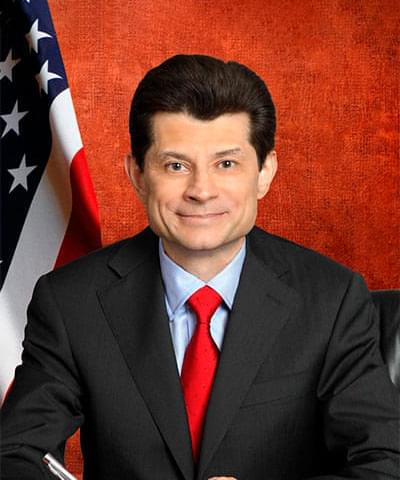William Faloon
William Faloon compiled the 1,500 page medical reference book Disease Prevention and Treatment and his latest book is Pharmocracy: How Corrupt Deals and Misguided Medical Regulations Are Bankrupting America—and What to Do About It. He is also Director and Cofounder of the Life Extension Foundation.
The Life Extension Foundation is a nonprofit organization, whose long-range goal is the radical extension of the healthy human lifespan. In seeking to control aging, their objective is to develop methods to enable us to live in health, youth, and vigor for unlimited periods of time. The Life Extension Foundation was officially incorporated in 1980, but the founders have been involved in antiaging research since the 1960s.
When he and Saul Kent established the Life Extension Foundation in 1980, they had no idea what they were in for. As young men, their objective was to raise public awareness about the fact that pathological aging need not be an inevitable consequence of human maturation. They were convinced that if the public could be enlightened about the importance of anti-aging research, greater resources would be devoted to finding ways to significantly extend the healthy human lifespan.
Back in 1980, few scientists believed that anything could be done to prevent the degenerative effects inflicted by aging. To counter this misconception, Bill pointed to then-current scientific studies showing that it was possible to prevent some age-related diseases and to slow the aging process itself, at least in animals. He argued that if enough funds were committed to research, therapies to retard human aging could be developed that would result in the greatest revolution in medical history.
Few people in 1980 thought that intervention into biological aging was possible, and many questioned why Bill would want to interfere with nature. He argued that aging was the greatest scourge afflicting humanity and that if people had the opportunity to live longer, many of society’s problems would disappear.
Bill based his philosophical arguments on theories that people with limited lifespans are not particularly motivated to protect society’s long-term interests, since they themselves have only a relatively short time to live. Longer lifespans, he asserted, would result in people behaving in a manner that would make the world a better place, since they themselves would have to exist in the environment they create.
Being controversial carries a heavy price. The news media viciously attacked his position and had no problem finding academic scientists to denigrate him in every way possible. The federal government raided his facilities twice, initiated an 11-year criminal investigation, and threw him and Saul Kent in jail in 1991.
Bill retaliated by filing multiple lawsuits against the federal government, which resulted in the return of all the property it had seized from him. He rallied health freedom activists to keep the FDA from turning vitamins into drugs. He enlightened Americans about the availability of lower-cost prescription drugs in other countries. And he eventually convinced the US Attorneys’ Office to dismiss the criminal indictments brought against him by the FDA.
One benefit of all this controversy was that even though the news media did not treat him well, it did report what he was doing. Because of this media coverage, many enlightened people found out about the Life Extension Foundation, joined as members, and even made substantial donations to support it.
When the FDA conducted its first armed raid in 1987, the Life Extension Foundation had only 4,000 members. Thanks to publicity generated by the FDA’s actions, this number grew to 25,000 members by the time his criminal indictments were dismissed in 1995. LEF now has over 100,000 members and each month mails 300,000 copies of Life Extension Magazine to newsstands, subscribers, and members.
To promote Life Extension’s innovative medical concepts, Bill has been featured in hundreds of media appearances including The Phil Donahue Show, The Joan Rivers Show, Tony Brown’s Journal, ABC News Day One, and Newsweek magazine.
